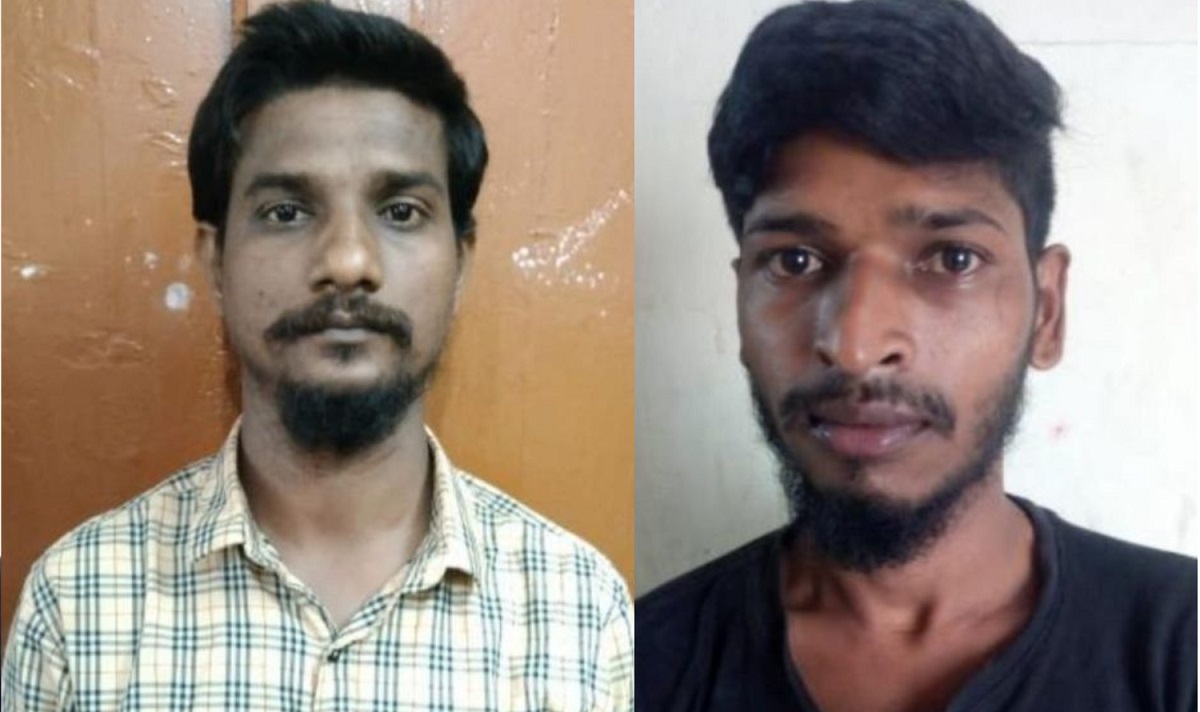There were four assailants who alighted from the car and charged towards the policemen with weapons. Two were killed and two more fled.

History-sheeters Chota Vinodh (left) and Rajesh (right) who were killed in the incident. (Supplied)
Two history-sheeters, with allegedly long criminal records, were gunned down by the Tambaram City Police after they attacked a police sub-inspector during a vehicle check. The incident occurred on the outskirts of the city during the early hours of Tuesday, 1 August.
The police identified the deceased as 35-year-old Vinodh alias Chota Vinodh, and his accomplice, 32-year-old S Ramesh.
In the wee hours of Tuesday, while the police were performing vehicle checks on the Puducherry-Warangal Road near Karanai, the sub-inspector who was on duty signalled a Skoda car to stop. The car hit the police jeep and came to a halt.
Four assailants alighted from the car and charged towards the policemen with weapons.
Sub-Inspector (SI) Siva Gurunathan, while defending against the attack, sustained an injury to his left hand. Inspector of Police Murugesan, who was also present, came to the rescue of his subordinate. When the suspects tried to attack the inspector, he shot one of them with his service revolver.
The SI Gurunathan then shot another man, who tried to attack him again. The remaining two men fled the scene.
The police rushed the two injured people to the Chengalpattu government hospital where the doctors declared them “brought dead”, the police stated.
SI Gurunathan was admitted to the Chromepet government hospital for treatment.
A senior police officer said, “The SI managed to evade a lethal blow aimed at his head and shot at one of the attackers, while police inspector Murugesan, who was also part of the team checking vehicles, rushed to his colleague’s help and fired at another man.”
The police identified the deceased as Vinodh, an A+ category history-sheeter in the Otteri police station with 50 cases registered against him, including 10 murder cases and 15 attempted murder cases.
S Ramesh, an A category history-sheeter, has 20 cases registered against him, including five murder cases and six attempted murder cases.
Senior police officials examined the spot where the criminals were shot and also visited the general hospital were they conducted an inquiry with the SI.
An FIR has been registered in the case of two encounter deaths at the Guduvanchery police station.
In February, a female SI, Meena, attached to the Chennai City Police, shot an accused below the knee.
In the same month, a member of the Coimbatore City Police paralysed two accused who were involved in a murder at a court complex. They were shot below the knee as well.
In July, the Chengalpattu police shot an accused, Ajay, who was involved in the murder of a PMK functionary.
The Supreme Court had laid down guidelines to follow after a police encounter:
Apart from the Supreme Court guidelines, the NHRC has also issued guidelines regarding encounters to all states and Union territories:

Jul 26, 2024

Jul 25, 2024

Jul 21, 2024

Jul 21, 2024

Jul 21, 2024

Jul 21, 2024